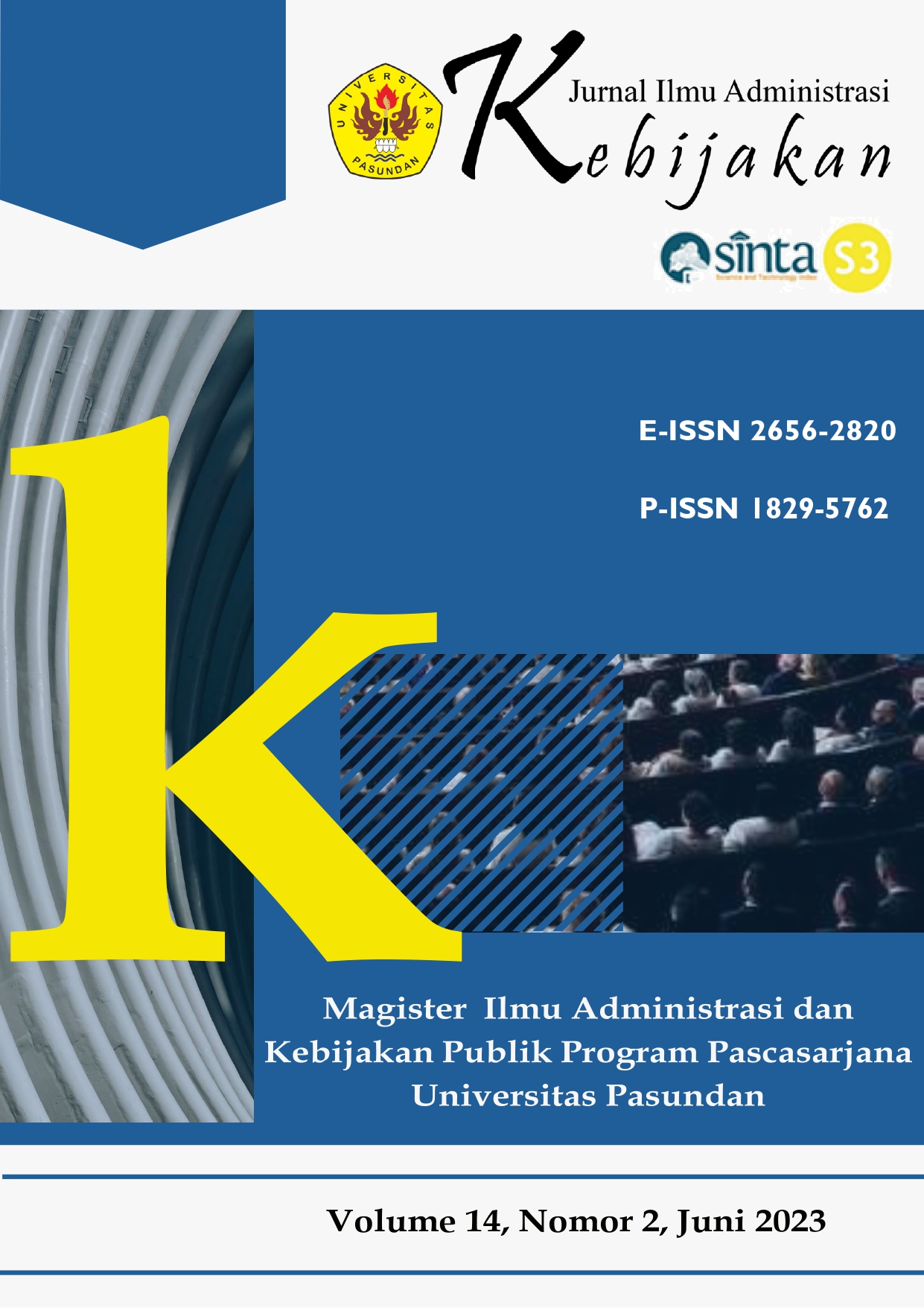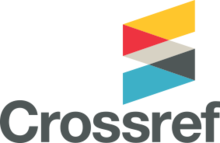EFEKTIVITAS PELAKSANAAN KEBIJAKAN PENGURANGAN PENGGUNAAN KANTONG PLASTIK DI KOTA SUKABUMI
DOI:
https://doi.org/10.23969/kebijakan.v14i2.5823Keywords:
Policy effectiveness, plastic bags reduce, environmentAbstract
Waste is a major pollution problem both globally and nationwide. One type of waste that is inherently persistent and harmful to human health is plastic waste. Plastic is one of the materials found in almost every item. The Government of Sukabumi city has stipulated the Mayor's Regulation No. 19 of 2019 about reducing the use of plastic bags in order to minimize the generated plastic waste, prevent environmental pollution caused by plastic waste and maintain environmental sustainability. The research used one variable, namely effectiveness, and applied the policy effectiveness theory proposed by Nugroho (51-54:2021) consisting of right policy indicators, right implementation, right target, right environment, and right process). The research employs one variable (1), the effectiveness variable.This research uses a Mixed Methods approach with a Conccurent Triangulation model. The research also deployed the z-test analysis technique. The result of the research on the level of policy effectiveness shows that the use of plastic bags reduction policy in Sukabumi City is considered to be very effective, gaining a percentage of 87.53%. Moreover, the result of the z-test acquires a calculated z value of 0.151, meaning that in the research, the result of the z-test is greater than the z-table namely amounted to 0.05; therefore, H1 is accepted, indicating that the effectiveness of the use of plastic bags reduction policy in Sukabumi City is effective
Downloads
References
Anderson, J. E. , E. J. R. B. R. (2011). Public Policymaking.
Creswell, J. W., & Creswell, J. David. (2019). Research design : qualitative, quantitative and mixed methods approaches (5th ed.). SAGE.
Dunn, W. N. (2003). PENGANTAR ANALISIS KEBIJAKAN PUBLIK. Gajah mada universitas press.
Ghozali, I. (2016). Aplikasi Analisis Multivariete SPSS 23.
Herlina, N. (2015). Permasalahan Lingkungan Hidup dan Penegakan Lingkungan Hidup di Indonesia. Jurnal Ilmiah Galuh Justisi, 3(02).
Karuniastuti, N. (2013). Bahaya Plastik Terhadap Kesehatan dan Lingkungan. Forum Teknologi, 3(1). http://ejurnal.ppsdmmigas.esdm.go.id/sp/index.php/swarapatra/article/download/43/65/76
Mees, H., Dijk, J., van Soest, D., Driessen, P. P. J., Rijswick, H. F. M. W., & Runhaar, H. (2014). A method for the deliberate and deliberative selection of policy instrument mixes for climate change adaptation. ECOLOGY AND SOCIETY, 19, 58. https://doi.org/10.5751/ES-06639-190258
Nugroho, R. (2021). Kebijakan Publik : Formulasi, Implementasi dan Evaluasi. PT Elex Media Komputindo.
Salyers, V., Carter, L., Carter, A., Myers, S., & Barrett, P. (2014). The Search for Meaningful e-Learning at Canadian Universities: A Multi-Institutional Research Study. International Review of Research in Open and Distance Learning, 15, 313–337. https://doi.org/10.19173/irrodl.v15i6.1713
Sistem Informasi Pengelolaan Sampah Nasional. (2022). SIPSN. https://sipsn.menlhk.go.id/sipsn/
Sugiyono. (2018). Penelitian Kualitatif, Kuantitatif dan R&D. Alfabeta.
Windiyastuti, C. U. (2007). Teorema Limit Pusat Multivariant Pada Pengendalian Proses Statistik.







